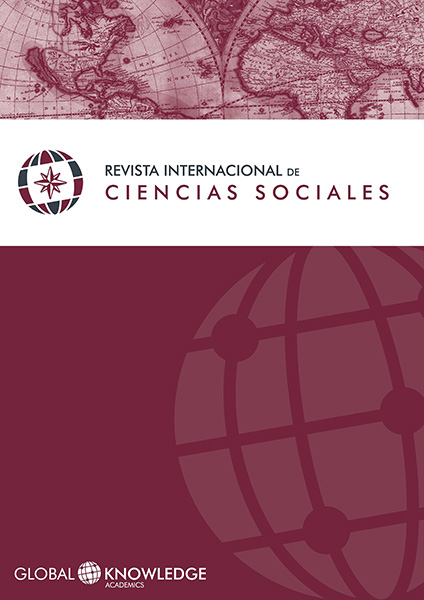Border Conditions in the Uses of Sociohumanistic Knowledge in Cuba
DOI:
https://doi.org/10.37467/gka-revsocial.v7.1617Keywords:
Sociohumanistic Knowledge, Border ConditionsAbstract
Social scientific knowledge must be managed efficiently, so that it contributes to social development. It is important that the dialogue of knowledge produce and result in new knowledge. There are still important contradictions in its practice, manifested in a certain instrumentalization and the subjection to dissimilar restrictions. The boundaries that limit it are not personal or social, individual or collective; they are epistemological borders that emanate from the knowledge that enters into dialogue. The purpose of this article is to contribute to this basic reflection. The starting premise: how did the scientific and social knowledge in Cuba influence the way in which it was managed, according to the project of the nation assumed in January 1959?
Downloads
Global Statistics ℹ️
|
369
Views
|
77
Downloads
|
|
446
Total
|
|
References
Acanda, J. L. (2010). "Traducir a Gramsci". La Habana, Cuba, Editorial de Ciencias Sociales.
Acanda, J. L. (2005). “Cambios en la sociedad civil cubana y su reflejo en el pensamiento cubano desde los noventa al momento actual”. En, colectivo de Autores “Cambios en la Sociedad Cubana de los Noventa”. República Dominicana, FLACSO, Woodrow Wilson International Center for Scholars. Latin American Program. Disponible en, www.flacso.co. Consultado mayo 2010: s.n., 2005.
Alfonso, G. F. (2010). "Ciencias Sociales Cubanas de inicios de siglo, publicaciones y procesos de toma de decisión. Aproximación a sus principales retos. La Habana, Cuba. Revista Temas No. 62-63.
Castro, Fidel. (2005). "Discurso pronunciado en el acto por el 60 aniversario de su ingreso a la Universidad de La Habana", en el Aula Magna de la Universidad de La Habana. 17 de noviembre de 2005. La Habana, Cuba. Juventud Rebelde.
Delgado C. D. 2012. “La Filosofía en su tiempo histórico”. Aparece en Valdés F. y Yohanka L. Compiladores. Editorial de Ciencias Sociales, Ruth Casa Editorial, 2012.
Dosagües. R. L. 2015. “Filosofía de los usos del Conocimiento Sociohumanístico en Cuba”. SCRIPTORIUM Repositorio Institucional de Acceso Abierto, la obra, tesis de doctorado con DOI: 1897. Universidad de La Habana, 2015.
Espina, M. P. (2003). "Cuba: La hora de las Ciencias Sociales". En, "Sin urna de cristal". Compilador, Rafael Hernández. La Habana, Cuba. Centro de Investigación y Desarrollo de la Cultura Cubana Juan Marinello.
Heredia, F. (2008). "El ejercicio de pensar". La Habana, Cuba. Ruth, Casa Editorial. Editorial de Ciencias Sociales.
Martín, Juan Luis. (1999). "La investigación social en Cuba (1959-1997)". La Habana, Cuba Revista Temas, Nº 16-17, Octubre de 1998-junio de 1999.
Política(ed), Editora. (2005). "Congresos del Partido Comunista de Cuba. Informes y Resoluciones". La Habana, Cuba. Editora Política.
Política(ed), Editora. (2011). "Lineamientos de la Política Económica y Social del Partido y la Revolución". La Habana, Cuba. Editora Política. 18 de abril de 2011.
Vilá, D. B. (2009). “Lo único que sé es que no soy marxista”. En, "Manuscritos a contraluz. Cuba entre Imaginario y Realidad". Disponible en,
http://letras-uruguay.espaciolatino.com/aaa/vila_blanco_dolores/index.htm. Consultado abril 2014: s.n., 2009.
UNESCO: Transdisciplinarity. Stimulating Synergies, Integrating Knowledge, UNESCO Division of Philosophy and Ethics, París, 1998.
Downloads
Published
How to Cite
Issue
Section
License
Those authors who publish in this journal accept the following terms:
-
Authors retain copyright.
-
Authors transfer to the journal the right of first publication. The journal also owns the publishing rights.
-
All published contents are governed by an Attribution-NoDerivatives 4.0 International License.
Access the informative version and legal text of the license. By virtue of this, third parties are allowed to use what is published as long as they mention the authorship of the work and the first publication in this journal. If you transform the material, you may not distribute the modified work. -
Authors may make other independent and additional contractual arrangements for non-exclusive distribution of the version of the article published in this journal (e.g., inclusion in an institutional repository or publication in a book) as long as they clearly indicate that the work was first published in this journal.
- Authors are allowed and recommended to publish their work on the Internet (for example on institutional and personal websites), following the publication of, and referencing the journal, as this could lead to constructive exchanges and a more extensive and quick circulation of published works (see The Effect of Open Access).













